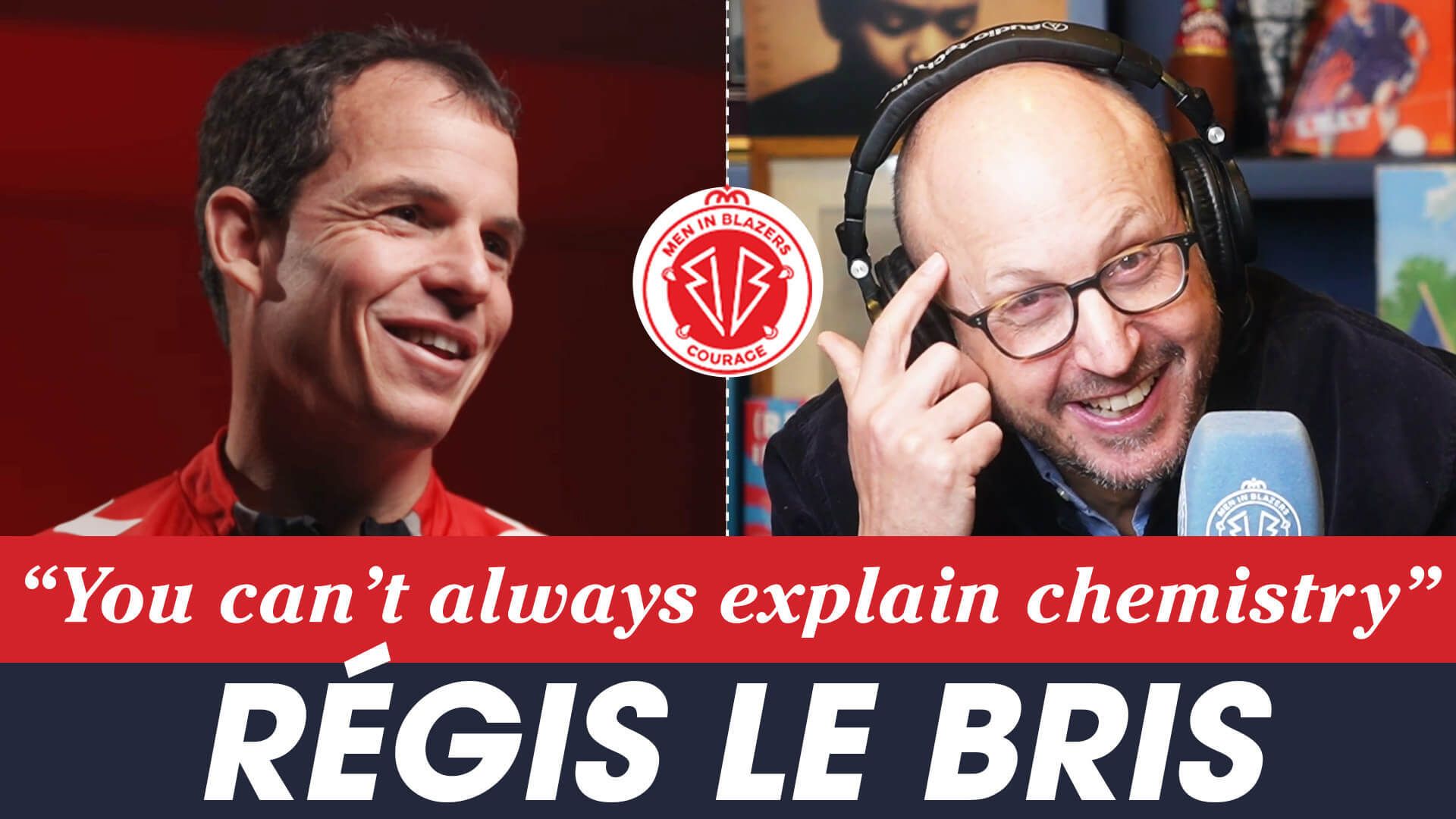Greetings from Yorkshire!
I had the dubious pleasure, over the weekend, of being present in person to watch what had started out as Liverpool’s wobble, turned into a slump and then descended into a malaise before hitting its next milestone: it’s an overused word, but the champions should now be regarded as being in full-blown crisis.
The issue is not so much the table: much as the rest of the contenders for a Champions League slot waited for Manchester City last season, Liverpool’s peers are being intensely polite this time around. Arne Slot’s team has won only once in the league since mid-September and is now 12th in the standings (below even Everton) but, somehow, is still only three points off fourth place.
The problem is that Slot does not seem any closer to working out how to solve the fiendishly complex challenge he has been set: he is in one of those phases where everything he tries seems to go wrong. As he himself said – and it’s a good line – the risks he took last season came off as “brave,” whereas now exactly the same moves look “stupid.”
Still, there was some solace: it’s much easier to handle disappointment, even in the form of Nottingham Forest’s biggest ever win at Anfield, when you’re there in person, surrounded by people just as baffled and anxious and despairing as you. Football, as the saying goes, is better with friends. I think that’s especially true in defeat.
Right. Let’s talk about something else.
England’s Unknowable Superstar 🏴

The names might be different, the circumstances tweaked, but there is something deeply, typically and quite depressingly English about what, for the sake of ease, we are going to describe as the Jude Bellingham Situation.
For those of you not quite as ensnared in the England national team’s news cycle, here is a quick recap. During the international break, Bellingham seemed a touch disgruntled at the fact that he was substituted by Thomas Tuchel during a routine and frankly very boring win against Albania.
This led to discussion in some sections – not all, and that is important – of the British media over whether England might, perhaps, be better off without Bellingham at the World Cup next summer (which, regular readers will remember, there is unfortunately a very real risk they are going to win).
This is, on the surface, a fairly outlandish suggestion. (Other adjectives are available.) Bellingham is only 22, and yet he is already one of the most successful English exports of all time. He inspired – and that is not too much of a stretch – Real Madrid to the Champions League in his first season in Spain; he is a touchstone of the biggest club in the world. He is an undeniably world-class English talent, probably the finest English player of his generation, a bona fide English superstar.
All of which, unfortunately, is something that tends to make England pretty uncomfortable. This is not a country that offers an easy embrace to superstars. Instead, it is naturally inclined to what Australians refer to as “Tall Poppy Syndrome”: an instinctive, reflex desire to cut down anyone perceived to be getting a little above their station.
In Bellingham’s case, that tendency has been inadvertently encouraged by Tuchel himself. The former Chelsea manager has adopted a policy of radical honesty since taking charge of England; he has, on several occasions, intimated that there are elements to Bellingham’s attitude, behavior, comportment – take your pick – that might be improved.
He said in June that his “edge” could “intimidate” teammates if not properly directed. He left him out of the squad in the autumn. He has said that “special players” can sometimes have “special rules,” but that everyone has to “accept and respect” his decisions. Tuchel has always insisted he has no problem with Bellingham, but in a country which harbors a tacit distrust of those who stand out, he may have (again, unintentionally) helped forge the impression that Bellingham has grown too big for his boots.
Or, as Ian Wright has eloquently described, there may be a more troubling explanation for the relentless focus on Bellingham. To Wright – never less than a considered and candid observer – there is an unavoidable racial element to Bellingham’s treatment. In his view, England (or at least parts of its news media) is not able to tolerate a Black (or mixed-race) superstar who carries himself with the sort of confidence that has always characterized Bellingham.
That qualifier is the key element, I think. Last weekend, Eberechi Eze scored a hat-trick for Arsenal in the north London derby. Except for Tottenham fans, it is hard to think of a more universally popular player at the moment than Eze. His story is not just a fairytale but a parable, proof of the power of determination and drive as much as his shimmering, brilliant talent.
Sadly, of course, there will be a small, hate-filled section of the public who hold the color of his skin against him, but for the overwhelming majority, the affection he inspires is not diminished by the fact that he is Black. Eze is rare in that his popularity cuts across tribal lines (for now), but few clubs have any trouble embracing non-white stars. Many of the most popular players in the Premier League are Black or mixed race: Virgil Van Dijk, Moisés Caicedo, Bukayo Saka, Matheus Cunha, Iliman Ndiaye.
Wright’s mention of Bellingham’s confidence, though, is significant. It may well be that the swagger which has always marked Bellingham out, which is in many ways his great strength, contravenes what is known as the idea of the Good Immigrant; it might be his unapologetic assertiveness, rather than his color, which triggers a negative response.

I am not qualified to make an absolute judgment on that; it is certainly not my place to take issue with Wright’s assessment and experience of what it is to be Black in modern Britain. It is certainly not an outlandish claim to suggest that Black and mixed-race players – or people with a public profile, outside of sport – are held to a different standard than their white counterparts.
But there is one other element which I think is relevant, one not nearly as socially important but one that may have a substantial impact in the specific case of Bellingham. It is something we touched on in this week’s edition of “European Nights,” but it bears a little further explanation: Bellingham is, to much of the English public, an unfamiliar figure.
Eze is relevant here, too. The fact that he is so well-liked is down, in no small part, to the fact that we discovered him – we being England as a football culture – playing for a team that does not fill most fans with any particular loathing. Only Brighton really dislikes Crystal Palace. Eze was, in effect, neutral; he was not tarred by a tribal affiliation to one of the Premier League’s big beasts.
The same should really apply to Bellingham. He has only played for Birmingham City, his hometown team, in England; he left for Borussia Dortmund when he was just 17. Birmingham felt so privileged to have played a part in his development, so sure of his incipient greatness, that the team retired his number. He has not played in English club football since. It is not clear whether this is or is not a deliberate strategy.
In his case, though, that has served to make him not only neutral, but somehow unknowable. There is something enigmatic about Bellingham. He rarely speaks to the news media. His social imprint is more Millennial than Gen Z: pristine, curated, deliberate. He is distant, presumably deliberately obscured.
Nor does he have a constituency of fans, in England, ready to plead his cause, to assert his superiority, to defend his name. In the midst of the great, pointless debates of the early aughts, Steven Gerrard and Frank Lampard and Paul Scholes all had an army of club fans at their back, ready to go to battle for their favorite. Bellingham does not have that, not in any great number; the Venn Diagram of Real Madrid fans who care about England is not a vast one.
This is, I think, significant when considering how Bellingham is treated by a public who should, really, adore him. It carries with it an echo of Argentina’s slightly uneasy relationship with Lionel Messi in his early years, or of Brazil’s more recent struggles to embrace players who have left their homeland as teenagers.
England respects what Bellingham has achieved in his young career. It admires what he has done, what he has become. It might even, for all its general unease around greatness, take pride in seeing an Englishman playing for Real Madrid. But none of that is the same as affection. And that means, when there is some hint of a problem, there are not quite so many people ready to fight his corner as there might be.
📬 Enjoying The Correspondent? Check Out Our Other MiB Newsletters:
🐦⬛ The Raven: Our Monday and Friday newsletter where we preview the biggest matches around the world (and tell you where/how to watch them) and recap our favorite football moments from the weekend.
☀️ The Women’s Game: Everything you need to know about women’s soccer, sent straight to your inbox each week.
🇺🇸 USMNT Only: Your regular update on the most important topics in the U.S. men’s game, all leading up to next year’s World Cup.
Warning: This Section Contains Acronyms 💰
It will, in time, come to be one of those moments that is burned onto our collective memory. We’ll all remember, I’m sure, where we were and what we were doing when we found out that PSR was no more. Compile the montages, compose the plangent music, try to remember all the joy it brought: the points deductions for Everton, and Forest, and Everton again. Good times.
One of the weirder aspects of PSR, to me, was how little anybody was prepared to make the case for it. The handful of clubs who wanted it to be abolished – who wanted, in effect, to let the free market rip – had free rein to shape the public perception of the Premier League’s very light financial controls. Finding people to defend it, in public, was infinitely more complex.
Now that it has gone, though, it might just be worth pausing to look at the Premier League it bequeathed us: one in which five points separate second and 11th, with Crystal Palace, Brighton, Bournemouth and Sunderland in the top 10. PSR does seem to have made the Premier League a more competitive place. This feels like a good thing.
Whether its replacement legislation will have the same effect is not clear. From next season, the Premier League will enter the SCR era, in which clubs will be allowed to spend 85% of their football-related income on football-related activities. There is a bit of leeway, too, for those who want to speculate to accumulate, allowing teams an extra 30% of spending, as long as they then bring it back under control pretty quickly.
It is impossible to know immediately whether that is an improvement or not, although at first glance it seems more likely to entrench a hierarchy than to diminish it. In lieu of any actual evidence, then, it might be worth looking at the teams who did not want to introduce it. Brighton, Bournemouth, Palace and Brentford all voted against. This would probably be a good time for someone to explain, in public, exactly what the benefit will be.
This Week on the MiB Pod 🎙️
Rog and Rory break down an incredible north London derby and react to Eberechi Eze's historic hat-trick that helped Arsenal to a 4-1 win over Tottenham. Plus, they discuss worrying signs for Arne Slot and Liverpool, wonder if Pep Guardiola and Manchester City are too reliant on Erling Haaland, and ask if Chelsea are our only hope now for a title race.
Reading Material 💻
Oh, Liverpool. ☹️
The long history of the long throw.
A little more World Cup qualifying afterglow? Yes please.
Human algorithm against actual boxer? No thanks.
The Full Kit League.
What to Watch 📺
This weekend feels like it might quietly be quite significant in three of Europe’s major leagues. Chelsea present the last real obstacle to Arsenal starting to stroll to the Premier League title. Roma sits top of Serie A, and beating Napoli at home would be a real statement of intent. In France, if Paris St-Germain were to lose at Monaco and Marseille could beat Toulouse at home, then Ligue 1 might just get a proper title race.
But the biggest fixture of the weekend – even bigger than Inter Miami against New York City in the first MLS Conference final – is in Lima, Peru, where Flamengo and Palmeiras face off in the final of the Copa Libertadores (Saturday, 4 p.m. ET, Fubo). That it is a repeat of the 2021 final, won in extra-time by Palmeiras, does not necessarily promise free-flowing football. But it is undeniably fitting.
This will, after all, be the fifth time in the last seven years that the climax to the Libertadores has involved two Brazilian teams; since 2019, only two finalists (out of 14) have not been from the league that is now South America’s lone powerhouse. River Plate was one, Boca Juniors the other. Both lost to Brazilian sides anyway.
That is testament not only to the ever-increasing wealth of Brazil’s major clubs, but to their rapid corporate development, too. Flamengo and Palmeiras, in particular, are now serious outfits, ones capable of paying the sorts of salaries that might just delay major talents leaving for the first offer from Europe. They are a growing force in the global game. It’s worth getting to know them.
Correspondents Write In ✍️
The recommendations for Boston – where I’ll be joining Rog, James Horncastle and a host of special guests to talk about the World Cup on Dec. 6 – keep rolling in, something which is both enormously appreciated and slightly intimidating. I think I’ll spend the day of the show touring as many as I can, so if I fall asleep/explode on stage, you can all blame yourselves.
Speaking of the World Cup, a great question from Jacob Geiger. “After watching the euphoric scenes this week as Scotland qualified, it got me wondering which countries and fan bases would be the most fun for us to host this summer,” Jacob, who is in Atlanta, asked. “As a veteran of past international tournaments, can you give us here, and readers in other host cities, a sense of which fanbases will bring the most fun to the bars (Brewhouse Cafe!), fan zones, and streets of our city?”
I am conscious that this is a risky sort of subject to address – Jacob is basically asking me to identify the best nations, and therefore indirectly the worst ones – but let’s give it a go, based entirely on my previous experiences and without deliberately insulting anyone. You’re correct that the Scots are very fun indeed, as are the Irish, if they make it. Your smaller European nations are generally a better bet than the larger ones; they are, after all, traveling much more in hope than expectation. I think Norway, for example, might be an excellent team to host.
The cliché that the Latin Americans add the noise, the color and the texture that makes the World Cup special is, ultimately, true. Teams like Ecuador and Colombia tend to be a little more carefree, I think, but any city that hosts Argentina and Brazil will both know about it, and remember it, for all the right reasons.
What really struck me in Qatar, though – and was reinforced, briefly, in the Club World Cup – is that I think we have to give similar credit to the North African contingent: Morocco, Algeria and Tunisia will all travel in numbers and the party spirit. But, in all honesty, that’s probably true of the vast majority of teams that qualify. There’s only a handful of teams at the World Cup who might be disappointed if they don’t win it. Everyone else is just there to have a good time.
That’s all for this week. I hope those of you who celebrate Thanksgiving are having a wonderful time with family and friends; I hope those of you who celebrate Black Friday are able to secure some memorable bargains. Please keep all of the questions, ideas and thoughts coming – [email protected] is the catchy email address – and I’ll see you, same time, same place, next week.
Take care,
Rory
All the stories worth knowing—all in one place.
Business. Tech. Finance. Culture. If it’s worth knowing, it’s in the Brew.
Morning Brew’s free daily newsletter keeps 4+ million readers in the loop with stories that are smart, quick, and actually fun to read. You’ll learn something new every morning — and maybe even flex your brain with one of our crosswords or quizzes while you’re at it.
Get the news that makes you think, laugh, and maybe even brag about how informed you are.



